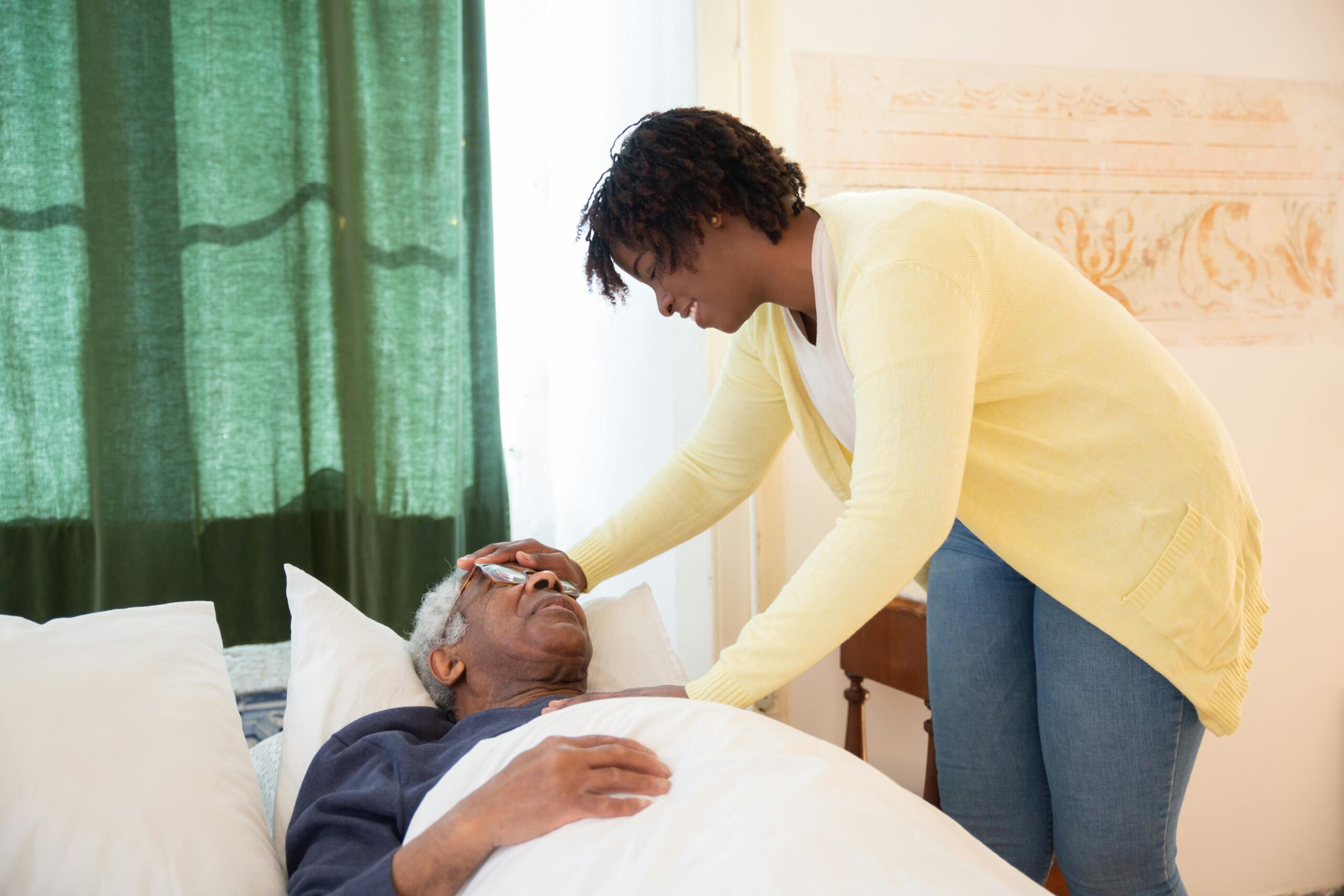By Destiny Uko
In Nigeria, the elderly are not dispatched to nursing homes. They remain in the company of children, grandchildren, and extended family. This tradition is rooted in deep respect for elders and the strong family ties that unite many households.
Despite being a noble act, living with ageing parents entails a mix of challenges that are rarely discussed in public. Especially for those juggling a career, raising children, or facing tight economic pressures, this extra care can be emotionally difficult.
One of life’s inevitabilities is a reversal in roles. The parents who once guided and protected you may now require guidance themselves. Some ageing parents typically struggle with mobility, memory loss, or even mood swings, and adjusting to this change requires patience.
In Nigeria, ageing is often accompanied by chronic conditions such as arthritis, diabetes, hypertension, or vision loss. For caregivers, staying informed about these conditions is important. Many hospitals now offer geriatric care units, and clinics such as the Geriatric Centre at UCH Ibadan have pioneered elderly-focused services in West Africa.
Where these are not accessible, regular check-ups at community health centres and a commitment to monitoring medications, diet, and rest schedules can make a significant difference.
Another critical aspect is communication. Encourage light-hearted conversations and reminisce with them—they enjoy stories. Even simple routines like morning tea chats or evening news together can foster connection.
Financial management is also essential. Many ageing parents do not have pensions, savings, or health insurance. As their offspring, this often means stepping into the role of provider.
To ease this burden, families can explore affordable health schemes or join cooperative societies that offer small health loans or medical cover. Some families share costs among siblings, rotating financial responsibility monthly or quarterly.
It also helps to keep your home elderly-friendly. Slippery tiles, dim lighting, or steep stairs pose a real threat. Installing grab bars in bathrooms, removing sharp corners, or using flip-flops with grip can prevent falls. Keeping their bedding and clothes within reach can reduce accidents.
Food and nutrition must also be adapted with care. Meals should be light, balanced, and easy to chew. Blended soups, pap, soft rice, or mashed yam with vegetables can supply nutrients without causing discomfort. Limiting salt, sugar, and heavy oil is key for those with chronic illnesses.
Spiritually, many ageing parents draw comfort from prayer, praise, or quiet time with scripture. Making space for this part of their routine is ideal. If they can no longer attend religious gatherings, arranging visits from spiritual mentors, playing faith-based music, or reading devotionals together can uplift their mood and reduce anxiety.
Create a structured daily routine that includes rest, meals, medication, mild exercise, and leisure. Routines reduce confusion and help elderly parents feel safe and grounded. This is especially helpful for parents with early signs of dementia or memory issues.
Encourage gentle physical activity. A short walk in the compound or some stretching exercises can improve mood, digestion, and mobility. If they are too weak, even seated leg lifts or assisted movements can help.
Many elderly Nigerians live with undiagnosed vision or hearing loss, which can make them feel disconnected. Schedule periodic eye checks and offer hearing aids or large-print reading materials if needed. Keep communication clear and face them while talking.
Help them maintain hygiene and grooming. Ageing does not mean neglect. Assist with bathing, nail trimming, or hair care. A fresh haircut or clean outfit can lift their spirit more than words sometimes can.
Get them involved in light, meaningful activities. Folding clothes, helping in the kitchen, sorting old photos, or shelling beans gives them a sense of purpose. Even when mobility is limited, small tasks can boost self-esteem.
Celebrate their little milestones. Acknowledge their birthdays, their wedding anniversaries, or even the day they retired. Dial in relatives to speak with them. These acts can reduce feelings of loneliness and abandonment, especially when they no longer go out much.
Watch for signs of depression or isolation. Withdrawal, loss of appetite, anger, or silence may be signs they are not fine emotionally. Let them know you care, and if necessary, connect them to a mental health professional discreetly.
Caring for ageing parents in Nigeria is not without its struggles. In a society where formal support systems are limited, creating comfort out of our homes becomes the most important structure of all.
In Nigeria, the elderly traditionally live with their families rather than in nursing homes, highlighting respect and familial bonds. However, this practice involves challenges, especially for family members managing careers and economic pressures. As parents age, they may struggle with mobility, memory, and chronic conditions such as arthritis or diabetes, necessitating patience and informed care. Geriatric care services are increasingly available, but regular health check-ups and medication monitoring remain crucial.
Effective communication, financial management, and an elderly-friendly home environment are essential. Simple acts, like modifying meals to suit dietary needs and promoting spiritual practices, play vital roles in their well-being. Creating daily routines and encouraging mild physical activity can improve their mental and physical health. Addressing sensory impairments and maintaining personal hygiene also contribute to their comfort and dignity. Additionally, keeping them involved in household tasks and celebrating life milestones can prevent feelings of isolation and depression, emphasizing the need for personalized support in the absence of formal systems.






